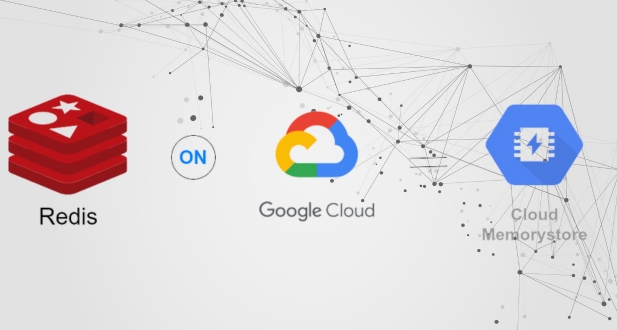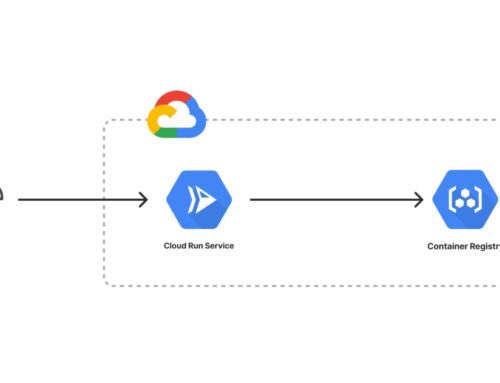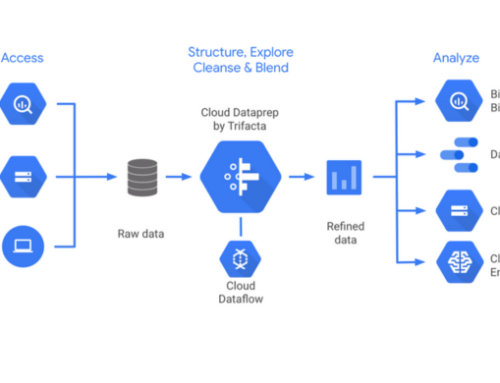Introduction to GCP Cloud Memory Store for Redis
Definition and Overview
GCP Cloud Memory Store for Redis is a fully managed, in-memory data store service provided by Google Cloud Platform (GCP). It operates on the popular open-source Redis, offering a scalable and high-performance caching solution for cloud-based applications. This service enables businesses to efficiently store and retrieve data in real-time, enhancing application responsiveness and reducing latency.
Redis as a Key-Value Store
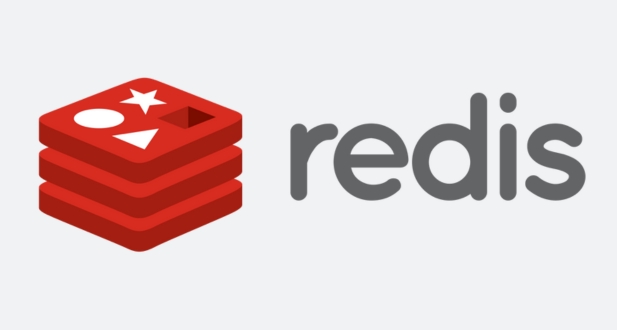
Redis, at its core, is a versatile, open-source, in-memory key-value store. It excels in rapid data storage and retrieval, using a simple yet powerful structure: key-value pairs. This approach allows developers to store various data types, such as strings, hashes, lists, and more, making Redis an ideal choice for scenarios demanding fast and efficient data access.
Integration with Google Cloud Platform
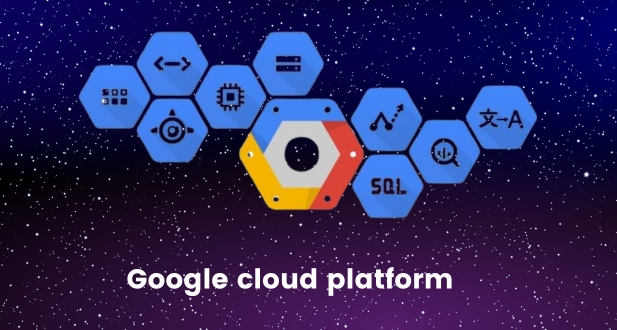
GCP Cloud Memory Store for Redis seamlessly integrates into the broader ecosystem of Google Cloud Platform. As a key component of GCP’s database and storage offerings, Cloud Memory Store plays a vital role in enhancing the overall cloud architecture. Its integration with other GCP services ensures a cohesive and efficient cloud computing environment, allowing developers to leverage the power of Redis alongside other Google Cloud tools and services for a comprehensive and scalable solution.
Key Features of GCP Cloud Memory Store for Redis

Managed Service Benefits
GCP Cloud Memory Store for Redis brings forth a range of managed service benefits. It liberates businesses from the intricacies of infrastructure management, updates, and maintenance. As a fully managed service, it automates routine tasks, allowing teams to focus on application development and innovation. This streamlined approach enhances overall operational efficiency, ensuring that the Redis environment remains optimized without the need for constant manual intervention.
Performance and Scalability
One of the standout features of Cloud Memory Store is its unparalleled performance and scalability. The service offers horizontal scaling capabilities, allowing businesses to effortlessly adapt to varying workloads. Whether experiencing spikes in demand or handling consistent high-throughput scenarios, Cloud Memory Store ensures optimal performance. This scalability is instrumental in maintaining responsiveness during peak times, guaranteeing a seamless user experience for applications relying on in-memory data storage.
Data Persistence and Durability
Cloud Memory Store provides flexible options for data persistence, allowing businesses to configure storage settings based on their specific requirements. This feature ensures that data is not only stored in-memory for fast access but also persists, safeguarding against data loss in case of failures or reboots. By offering configurable data persistence, the service strikes a balance between performance and data durability, catering to diverse application needs.
Compatibility with Redis Commands
Ensuring a smooth transition for developers familiar with Redis, Cloud Memory Store offers compatibility with a comprehensive set of Redis commands. This means that developers can continue leveraging their existing knowledge and skills, seamlessly integrating Cloud Memory Store into their workflows. The support for a wide range of Redis commands ensures that the service maintains compatibility with existing Redis applications, making it easy for businesses to adopt Cloud Memory Store without extensive modifications to their codebase. This compatibility simplifies the migration process and accelerates the deployment of Redis-based applications on GCP..
Advantages and Challenges
Managed Service Benefits
Expanding on the advantages of a managed service, Cloud Memory Store significantly impacts daily operations. By simplifying infrastructure management, the service reduces operational overhead. This not only translates to time and cost savings but also allows teams to allocate resources more efficiently, focusing on strategic initiatives and application development rather than routine maintenance tasks.
Integration with Google Cloud Ecosystem
While the integration with the Google Cloud ecosystem offers substantial strengths, it comes with considerations. Cloud Memory Store’s seamless integration ensures cohesive communication with other GCP services. However, potential challenges may arise in aligning different service architectures. Addressing these challenges requires a comprehensive understanding of each service’s strengths and limitations, ensuring a harmonious integration that maximizes the benefits of the entire GCP ecosystem.
Scalability and Performance
Scalability and performance are paramount, and Cloud Memory Store’s real-world scalability testing ensures it meets these expectations. Through various scenarios, the service demonstrates its ability to handle varying workloads with efficiency. This feature is particularly crucial for applications experiencing unpredictable usage patterns, providing businesses with the confidence that their in-memory data storage solution can scale seamlessly to meet demands.
Learning Curve
Addressing the learning curve associated with Cloud Memory Store is essential for developers new to the platform. Guidance and examples are provided to facilitate a smoother onboarding process. Resources are curated to support developers in transitioning from traditional Redis environments to the managed services model. This proactive approach ensures that teams can quickly adapt to the nuances of Cloud Memory Store, accelerating their proficiency and enabling them to unlock the full potential of the service.
Cost Considerations
Understanding the pricing model of Cloud Memory Store is crucial for effective cost management. An in-depth examination of the pricing structure is provided, offering transparency and clarity on cost implications. Strategies for cost optimization and resource allocation are explored, empowering businesses to make informed decisions based on their budgetary constraints and performance requirements. This section aims to equip organizations with the knowledge needed to optimize costs without compromising the efficiency of their in-memory data storage solution.
Comparison with Other In-Memory Data Storage Solutions
Comparison with Traditional Redis Deployment
Contrasting a managed service like GCP Cloud Memory Store with traditional self-hosted Redis deployments reveals distinct advantages. In a self-hosted scenario, the burden of infrastructure management, updates, and maintenance falls on the development team. GCP Cloud Memory Store alleviates this burden, offering a fully managed solution that automates routine tasks. This not only streamlines daily operations but also allows teams to focus on application development and innovation rather than infrastructure maintenance. The advantages of Cloud Memory Store over self-hosted Redis lie in its simplicity, scalability, and integration with the broader Google Cloud ecosystem.
Differentiators and Limitations
GCP Cloud Memory Store stands out due to key differentiators that distinguish it in the landscape of in-memory data storage solutions. Its seamless integration with the Google Cloud ecosystem, compatibility with various Redis commands, and robust managed service benefits are notable features. However, no solution is without limitations. While Cloud Memory Store offers simplified management, businesses should consider potential limitations, such as specific use cases that may require fine-tuned control over the Redis environment. Organizations evaluating in-memory data storage solutions must weigh the differentiators against potential limitations to determine the best fit for their specific needs. This comprehensive comparison ensures businesses make informed decisions, selecting a solution that aligns with their operational requirements and long-term goals.
Security and Compliance Considerations
Data Encryption
Ensuring robust security, Cloud Memory Store employs encryption both in transit and at rest. This safeguards data during communication between instances and when stored persistently. The encryption mechanisms used adhere to industry best practices, providing a secure environment for sensitive information within Redis instances. This multi-layered approach to data encryption ensures that even in the event of unauthorized access, the data remains protected, contributing to a comprehensive security posture.
Access Controls and Authentication
Controlling access and enforcing strong authentication mechanisms are integral to Cloud Memory Store’s security model. The service allows fine-grained control through Google Cloud’s Identity and Access Management (IAM) controls, enabling organizations to define and manage access permissions effectively. Authentication mechanisms, including secure password practices and possibly multi-factor authentication, are implemented to ensure only authorized users and applications can access and interact with Redis instances. This layered approach enhances the overall security of the in-memory data storage environment.
Compliance with Industry Standards
GCP Cloud Memory Store aligns with industry standards, underscoring its commitment to data privacy and security. By adhering to recognized standards, the service ensures that businesses can confidently integrate it into environments subject to regulatory requirements. This compliance extends to data privacy regulations, providing organizations with a reliable solution that meets or exceeds the stipulations set forth by relevant industry standards and legal frameworks. This commitment to compliance enhances trust and reliability in the secure management of sensitive data within the Cloud Memory Store.
Use of GCP Cloud Memory Store for Redis in Specific Industries
Retail and E-commerce
In the dynamic landscape of retail and e-commerce, GCP Cloud Memory Store for Redis plays a pivotal role. The service enhances online shopping experiences by providing fast and efficient in-memory caching. This ensures that product listings, images, and other critical data are readily available, reducing page load times and optimizing user interactions. Additionally, Cloud Memory Store proves valuable in handling transactional data, contributing to seamless and secure transactions within retail applications. By improving data access speed and reliability, the service supports the high-performance demands of the retail and e-commerce sector.
Gaming Industry
The gaming industry thrives on real-time experiences, and Cloud Memory Store aligns perfectly with its demands. The service supports real-time multiplayer gaming experiences by efficiently managing in-memory data, ensuring low latency and high throughput. In gaming applications, where rapid data access is critical for player interactions, Cloud Memory Store becomes a strategic asset. Its ability to handle high-throughput data scenarios ensures that gaming platforms can deliver smooth and immersive experiences to users. As the gaming industry continues to evolve, Cloud Memory Store remains a valuable component for ensuring optimal performance and responsiveness.
Future Developments and Roadmap
GCP Cloud Memory Store for Redis is committed to continuous improvement, with Google Cloud actively investing in service updates and enhancements. The roadmap for Cloud Memory Store includes upcoming features designed to further elevate its capabilities. This commitment underscores Google Cloud’s dedication to providing cutting-edge solutions that align with evolving industry needs. Anticipated enhancements aim to address emerging challenges and incorporate innovative functionalities, ensuring that Cloud Memory Store remains at the forefront of in-memory data storage technologies. Users can expect a roadmap that reflects Google Cloud’s responsiveness to user feedback, industry trends, and the ever-changing landscape of cloud computing.
Monitoring and Troubleshooting
Monitoring Performance Metrics
Effectively monitoring the performance of GCP Cloud Memory Store for Redis is crucial for maintaining optimal operation. Utilizing Google Cloud’s monitoring tools provides real-time insights into the health and efficiency of Redis instances. Key performance metrics to track include latency, throughput, and resource utilization. Latency metrics offer insights into the responsiveness of the system, throughput metrics help gauge data processing capacity, and resource utilization metrics provide an overview of resource efficiency.
Cloud Monitoring allows users to set up custom dashboards, alerts, and notifications based on these critical metrics. This proactive monitoring approach ensures that potential issues are identified and addressed before they impact performance or user experience. By regularly reviewing performance metrics, organizations can make data-driven decisions, optimize resource allocation, and maintain a high-performing Redis environment.
Troubleshooting Common Issues
Addressing common challenges in Redis deployment is a part of ensuring the reliability of Cloud Memory Store. Issues such as network connectivity, configuration errors, or performance bottlenecks may arise. Google Cloud provides extensive resources and best practices for effective troubleshooting. Documentation, community forums, and support channels offer valuable insights and solutions to common issues.
For example, if there are connectivity issues, users can leverage network monitoring tools to identify potential network bottlenecks. Configuration errors can be resolved by carefully reviewing and adjusting Redis configurations in alignment with best practices. Performance bottlenecks may require fine-tuning of resource allocations or adjustments to cache strategies. Google Cloud’s troubleshooting resources empower users to diagnose and resolve issues efficiently, minimizing downtime and optimizing the performance of Cloud Memory Store for Redis.
In conclusion, a robust monitoring and troubleshooting strategy ensures the ongoing health and performance of Cloud Memory Store, contributing to a reliable and responsive in-memory data storage solution.
Community and Industry Insights
Community Engagement and Collaboration
Active participation in both the Redis and Google Cloud communities is a cornerstone of success for organizations leveraging GCP Cloud Memory Store for Redis. Engaging with these communities provides a platform for knowledge exchange, collaboration, and collective improvement.
Organizations are encouraged to contribute their insights, challenges, and solutions to these communities. Sharing real-world experiences fosters a collaborative environment where peers can learn from each other’s successes and address common challenges. This collaborative spirit not only strengthens the collective knowledge base but also nurtures a supportive ecosystem where the community becomes a valuable resource for overcoming obstacles and optimizing the use of Cloud Memory Store.
This engagement can take various forms, including participation in forums, attending community events, contributing to open-source projects, and actively seeking and providing assistance within the community. By actively engaging with peers and experts, organizations can enhance their expertise, stay updated on the latest developments, and contribute to the growth of the broader community.
Industry Trends and Evolving Use Cases
Staying informed about industry trends in in-memory data storage is essential for organizations relying on GCP Cloud Memory Store for Redis. The field is dynamic, with continuous advancements and evolving use cases shaping how in-memory data storage solutions are deployed.
Organizations need to remain agile and adaptive, adjusting their strategies based on emerging trends and evolving industry requirements. This includes keeping an eye on technological advancements, such as improvements in Redis itself or the introduction of complementary technologies. Moreover, understanding how other organizations in the industry are leveraging in-memory data storage can provide valuable insights for optimizing one’s own implementation.
By staying abreast of industry trends, organizations can proactively align their in-memory data storage strategies with the evolving needs of their industry. Whether it’s adopting new features, integrating with emerging technologies, or optimizing for novel use cases, a forward-looking approach ensures that organizations leveraging Cloud Memory Store remain at the forefront of industry innovation. This proactive stance not only enhances operational efficiency but also positions organizations to capitalize on new opportunities as they arise in the dynamic landscape of in-memory data storage.
Conclusion
In conclusion, GCP Cloud Memory Store for Redis stands as a robust and versatile solution for in-memory data storage, offering managed services that simplify infrastructure management and enhance operational efficiency. The service’s key features, including scalability, performance, and compatibility with Redis commands, make it a valuable asset for diverse industries, from retail and e-commerce to the dynamic realm of multiplayer gaming.
As organizations embrace Cloud Memory Store, active engagement with the Redis and Google Cloud communities becomes a strategic imperative. By sharing insights, challenges, and solutions, organizations contribute to a collective knowledge base that fuels continuous improvement. Furthermore, staying attuned to industry trends ensures adaptability, allowing organizations to evolve their strategies in response to emerging use cases and technological advancements.
The journey with GCP Cloud Memory Store extends beyond the technical implementation, encompassing collaboration, knowledge-sharing, and a forward-looking approach to industry developments. By leveraging the service’s capabilities and actively participating in the broader community and industry discussions, organizations can not only optimize their current deployments but also position themselves for sustained success in the ever-evolving landscape of in-memory data storage. In essence, GCP Cloud Memory Store for Redis represents more than a technological solution—it is a catalyst for innovation, collaboration, and future-ready data management strategies.
What is GCP Cloud Memory Store for Redis, and how does it differ from traditional Redis deployments?
GCP Cloud Memory Store for Redis is a fully managed, in-memory data storage service on Google Cloud Platform (GCP). Unlike traditional Redis deployments, Cloud Memory Store simplifies infrastructure management, automates updates, and offers seamless integration with other GCP services. This managed service approach allows organizations to focus on application development rather than infrastructure maintenance.
Cloud Memory Store prioritizes data security by implementing encryption in transit and at rest. It integrates with Google Cloud’s Identity and Access Management (IAM) for robust access controls and authentication. The service also aligns with industry standards, ensuring compliance with data privacy regulations and providing a secure environment for sensitive data.
Key performance metrics to monitor include latency, throughput, and resource utilization. Latency metrics provide insights into system responsiveness, throughput metrics gauge data processing capacity, and resource utilization metrics offer an overview of efficiency. Utilizing Google Cloud’s monitoring tools allows users to track these metrics in real-time and make data-driven decisions.
Optimizing performance involves implementing efficient data modeling and caching strategies, regular maintenance, and utilizing Redis pipelines. Additionally, organizations should stay informed about best practices, ensuring they leverage features like efficient data modeling, caching strategies, and Redis pipelines for improved performance.
Cloud Memory Store offers disaster recovery features through Redis replication, ensuring data redundancy. It supports backup and restore strategies, allowing organizations to prevent data loss and efficiently restore data in case of a disaster. Testing and validating disaster recovery plans are also encouraged to ensure readiness.
In retail and e-commerce, Cloud Memory Store enhances online shopping experiences with fast in-memory caching and supports transactional data handling. In the gaming industry, the service facilitates real-time multiplayer experiences and efficient management of high-throughput gaming data.
Active engagement with Redis and Google Cloud communities provides organizations with a platform to share insights, challenges, and solutions. It fosters a collaborative environment for collective improvement. Staying informed about industry trends through community participation allows organizations to adapt their strategies to evolving use cases and requirements, ensuring they remain at the forefront of industry innovation.

